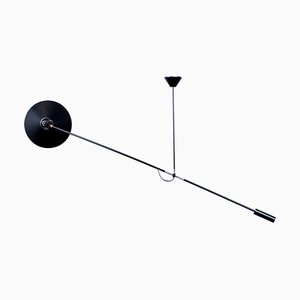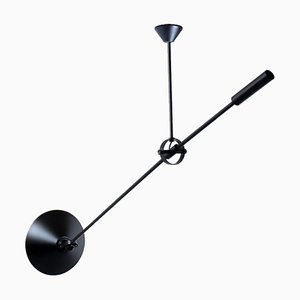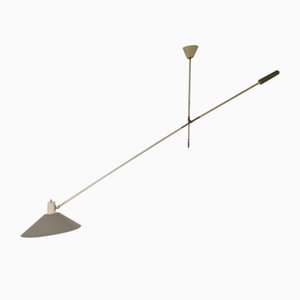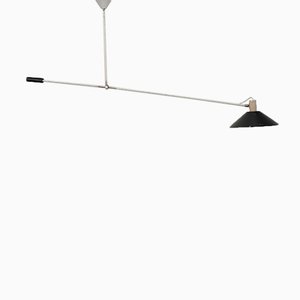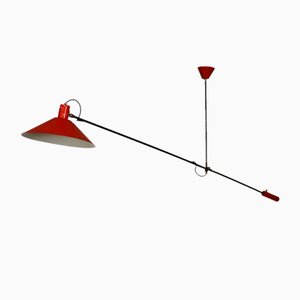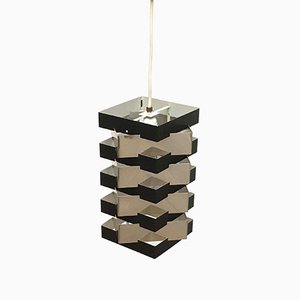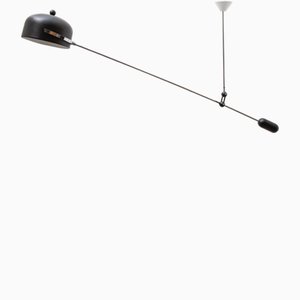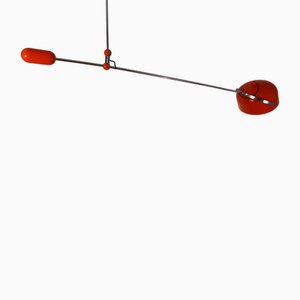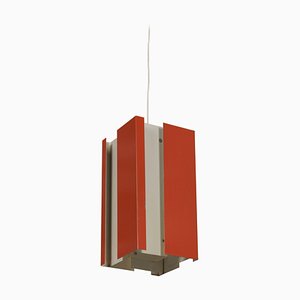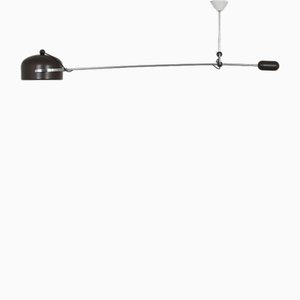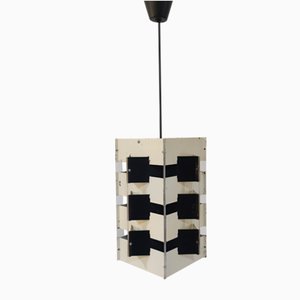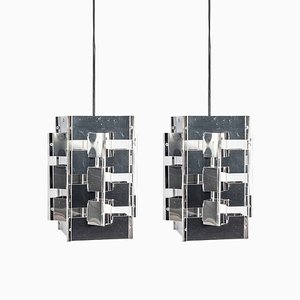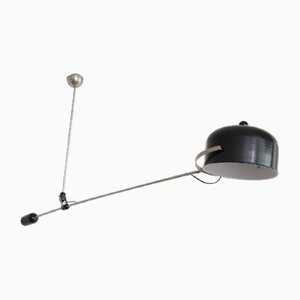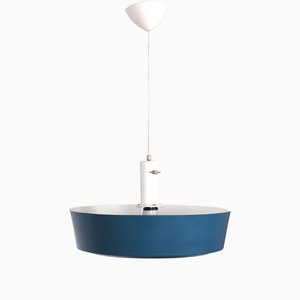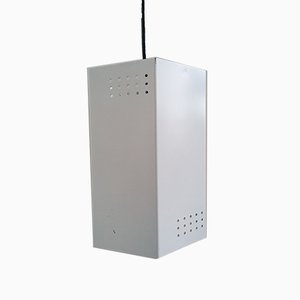
Johannes Joseph Maria Hoogervorst or Jan Hoogervorst (1918-1982) was a Dutch designer, artist, and architect celebrated for his modernist lighting creations for the Dutch brand Anvia.
Born in Alkmaar, the Netherlands on April 14th, 1918, Hoogervorst studied architecture before parting from family tradition to start a career as an illustrator. Despite being a gifted artist, Hoogervorst entered the design world in the 1950s after meeting and befriending Ilse Liebert, who was charged with rebuilding her family’s lighting business—Anvia—after the war. Although Hoogervorst had his own design agency, Interdesign, he began designing for Anvia on a regular basis.
Throughout the postwar period, Hoogervorst designed annual collections for Anvia. As a self-taught designer, Hoogervorst’s early designs were influenced by progressive Italian lighting companies, like Arredoluce, Stilnovo, and Arteluce; while his later designs are characterized by a strict, functionalist aesthetic. Many of Hoogervorst’s designs have developed into exemplars of postwar modernism, including the 8025 Floor Lamp (mid-1950s), Grasshopper Floor Lamp (1955), and the Counter Balance Lamp (1957), all of which enjoy considerable success on the vintage market today.
Although Hoogervorst was instrumental in Anvia’s success, the brand produced his designs without ever directly employing him. Nethertheless, the popularity of Hoogervorst’s designs placed Anvia in the top three Dutch lighting manufacturers—among internationally renowned brands Philips and Hala. Throughout the 1950s, ‘60s, and ‘70s, Hoogervorst’s own studio, Interdesign, designed the interior of theaters, offices, churches, cinemas, ships, and public places throughout the Netherlands. In 1967, Interdesign landed its commission, to design many light fixtures of the new Schiphol Airport, as well as the garbage bins which are still in use. Another major project of Hoogervorst’s was the lighting design of the old Luxor Theatre in Rotterdam. Over 1,000 bulbs in one sweeping arch still illuminate the theater today. Hoogervorst later went into business with his son—who worked as a distributer for British Thorn Lighting— taking advantage of his electrical knowledge to developing electronically controlled stage lighting.
While visiting his sister in Canada in the early 1980s, Hoogervorst discovered the enormous potential of the underdeveloped lighting design market there and had dreams of emigrating. Unfortunately, Hoogervorst died at the age of 64, before making the journey.

